Home Improvement
| Newer Posts | Older Posts |
How To Remove Cigarette Smoke Odors From A House |
|
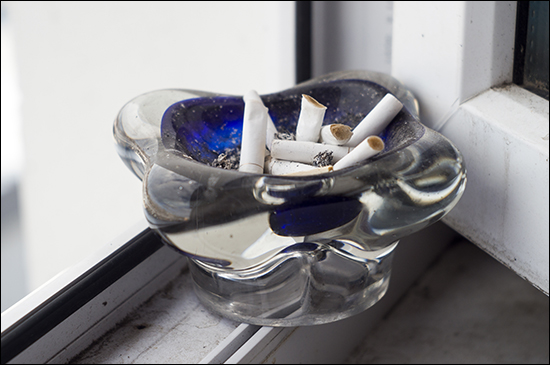 I have shown a few houses lately to buyers where we couldn't help but notice a lingering cigarette smoke odor in the home. That smell was not the only factor that kept these buyers from making an offer on these houses -- but it certainly was a part of the discussion and decision. So how in the world do you get a pervasive cigarette smoke smell out of a house? I'm not an expert, but my understanding is that you may need to consider some or all of these techniques:
Even if you take all of those (not inexpensive) steps above, you may still have some lingering smells -- and if you do, you probably shouldn't be entirely surprised. You might then consider using an ozone generator which can help eliminate odors. If you're going this route, you'll likely want to consult with a professional. In the end -- if you are considering the purchase of a home that has a pervasive smell of cigarette smoke, don't assume that it will be easy or inexpensive to remove that odor! | |
Your Home Is Not Likely Worth The Purchase Price Plus The Cost Of Your Home Improvements |
|
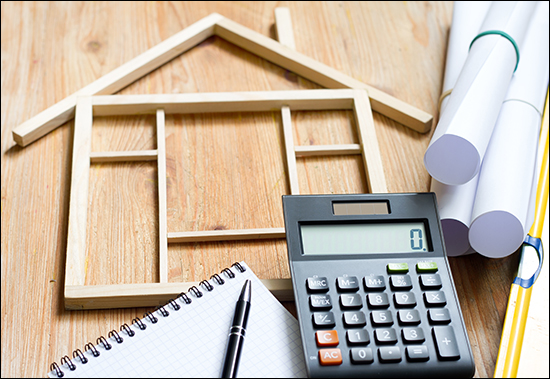 This math doesn't, generally, lead to an accurate understanding of market value -- but sometimes it is how homeowners start to think about market value... $250,000 - how much I paid for the house last year $10,000 - cost of my kitchen remodel $8,000 - cost of replacing my roof $4,000 - cost of replacing the carpet in all bedrooms $2,000 - painting all interior walls $3,000 - landscaping updates $2,000 - replacing some of the kitchen appliances -------------------------------------------------------------------------------- $279,000 - the new value of my home this year Is this home (as described above) now worth $279K? Maybe -- but if so, it is not likely a direct result of only the $29K of improvements -- but perhaps market improvements as well. Basically, the cost of most home improvements do not directly increase the value of your home by the amount you spent to make the improvement. If a home with an older kitchen is worth $250K -- and you spend $10K on a new kitchen -- your home might be worth $255K or $257K -- but not necessarily $260K. The same goes for almost all improvements you might make to your home - and in some ways, the less someone thinks about a home improvement on a daily basis, the less impact it is likely to have on value. If you owned a $250K house with an older but not leaky roof yesterday, and you spend $10K on a new roof today, your home is not likely to be worth $260K tomorrow. So, what then, does this mean for homeowners?
Thinking about making a home improvement but not sure if you should move forward with it based on how long long you might own the home? Feel free to touch base with me to discuss the decision. | |
Do Solar Panels Affect Home Values in Harrisonburg? |
|
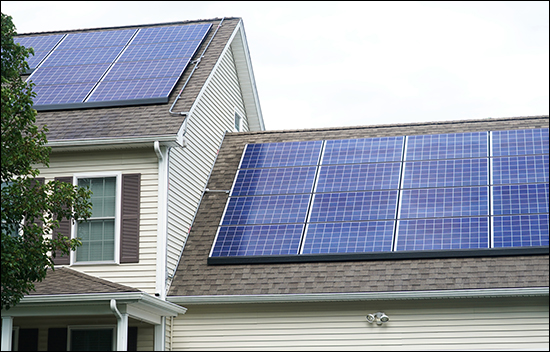 So, you're thinking of adding solar panels to your house? You might wonder if this will increase the value of your home -- or make it easier for your house to sell -- or make it more difficult for your house to sell. All good questions. I don't think there is one right answer. Here are some of my thoughts...
So -- if you're installing solar panels with the thought that you'll sell your home in the next year or two, it might not be advisable to do so. After all, you'd likely be passing on most of the cost savings over time to the next owner without the ability to cash in on that from a significantly higher sales price. If you're installing solar panels and you plan to stay in the home for a while, but want to be sure that you'll be OK selling the home in the future, I suspect you'll be just fine, and will likely sell your home for more than if it did not have solar panels. Ironically, one of the reasons that I can't provide much guidance on how solar panels affect home values in our local market is because there aren't many homes with solar panels that sell -- likely because most people who install solar panels plan to stay a while, and thus, don't sell... | |
Be Careful of Asking For Little Repairs When Also Asking for Big Repairs |
|
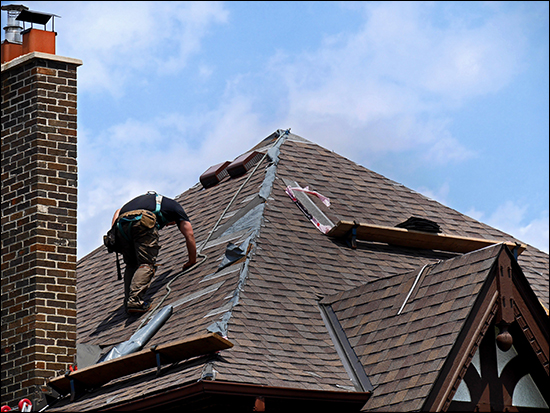 After a home inspection, a buyer knows more about the house than when they agreed to pay $X to purchase the house. In order for them to still want to pay $X for the house, they may ask the seller to address some of the deficiencies found during the home inspection. Imagine a hypothetical scenario where the following deficiencies are found:
So - which items should the buyer ask the seller to repair? Some could say ALL of them - the buyer didn't agree to pay $X for the house with all of these large and small issues. But I'd advise most buyers to only request that the seller address a subset of those issues:
All of the other items (3-7) are minor issues that won't cost too much (in time or money) to repair after you buy the house. But why not ask the seller to repair these items?
This is not a one-size-fits-all strategy, but I do urge you to carefully weight whether to ask for a home seller to make minor repairs if there are some major repairs that need to be addressed. | |
Aging In Your Current Home With Community Support |
|
 Have you, or a co-worker, friend, neighbor, parent, lived in their home for many years? Are they starting to face challenges of keeping up with home maintenance, or accessibility of some aspects of their home based on their age or mobility? Here's an organization you might want to check out... Valley Village (valleyvillagehbg.org) A member of the Village to Village Network From their website... The mission of Valley Village is to provide neighborhood members with community-building activities, and home-based services thereby promoting independence, convenience, safety and well-being, for those who wish to live in their own homes in a multi-generational community. The purpose of Valley Village is to ensure that all individuals have access to services needed to live independently in their community as long as possible. Find more out about Valley Village by visiting valleyvillagehbg.org. | |
Do Solar Panels Add Value To Homes in the Harrisonburg Area? |
|
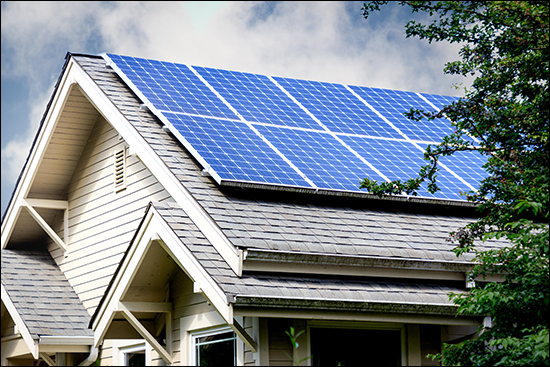 So, you're thinking of adding solar panels to your house? You might wonder if this will increase the value of your home -- or make it easier for your house to sell -- or make it more difficult for your house to sell. All good questions. I don't think there is one right answer. Here are some of my thoughts...
So -- if you're installing solar panels with the thought that you'll sell your home in the next year or two, it might not be advisable to do so. After all, you'd likely be passing on most of the cost savings over time to the next owner without the ability to cash in on that from a significantly higher sales price. If you're installing solar panels and you plan to stay in the home for a while, but want to be sure that you'll be OK selling the home in the future, I suspect you'll be just fine, and will likely sell your home for more than if it did not have solar panels. What are your thoughts on solar panels as it relates to home value? I'd love your input. Email me at scott@HarrisonburgHousingToday.com. | |
Differing Perspectives On Home Inspection Repairs |
|
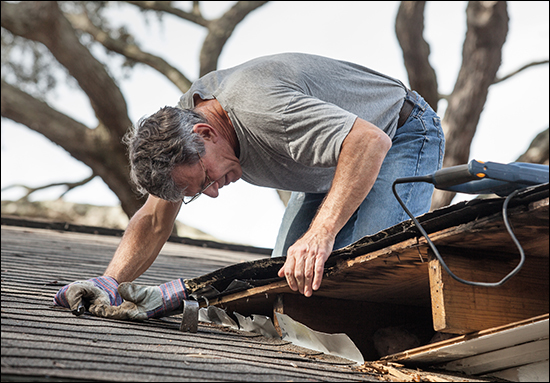 While not always the case, a general rule of thumb is that... On home inspection repairs -- sellers usually have a short term fix mentality -- while buyers usually have a long term fix mentality. And, successfully negotiating agreed upon repairs after a home inspection can be a smoother process if we reflect on the difference in those perspectives. Inspector: Several roof shingles are missing, and the roof is past its life expectancy. Seller: Replace the shingles. Buyer: Replace the roof. Inspector: The air handler coils are dirty and the heat pump is reeaaallly old. Seller: Clean and service the heat pump and air handler. Buyer: Replace them both! These are a few extreme examples to start to show the differences in perspectives on repairs. Again, the important thing here is to recognize that a buyer and seller look at home inspection reports differently. A seller typically wants to minimize their repair costs while keeping the home sale on track. A buyer wants to make sure that any previously unknown property condition issues are addressed in a manner that is likely to prevent further near term maintenance needs in those areas. Both perspectives are reasonable, most of the time, depending on how it plays out related to specific deficiencies of a home.
So, what is a buyer to do? A few thoughts....
| |
How Your Heat Pump Is Like Your Toenail |
|
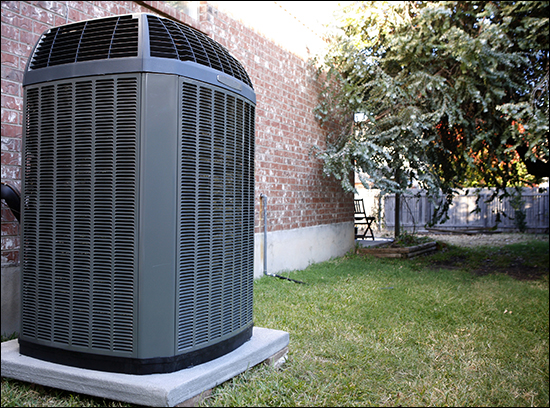 It's time for your annual (semi-annual?) physical with your doc -- and as you review your recent health concerns with your doctor you share that you have been having some severe pain in one of your toes and one of your toenails doesn't look so great. You're not sure -- and it turns out your doctor is not sure -- if it is a drastically in-grown toenail, a fungus, an infection, or something more. Your doctor refers you to a specialist (a podiatrist) for further evaluation to see if everything is OK and what recommendations (if any) they might have. At this point, do you...
I'm going to assume most of us are going to go with the first route -- we aren't going to start hyperventilating about our possible toe removal or foot amputation -- we're going to calmly schedule an appointment with a specialist to learn more, recognizing that our general doc just simply didn't have the expert information with which to fully evaluate whether there was an issue at all and if so how much of an issue it was. So -- can't we start thinking about our heat pump (and our roof, and our deck, and our foundation walls) like toenails? If you're buying a house, and the home inspector recommends that you have your heat pump (or roof, or deck, or foundation walls) evaluated further by a specialist... It is NOT my recommendation that you...
Instead -- consult the expert! See if the _____ is really in bad shape and needs to be replaced, or if, perhaps, everything is fine (or a minor repair is needed) but that the home inspector just didn't have enough specialized expertise to come to that conclusion on their own. Again -- if you get a "hmmm -- I'm not sure about the condition of _____ -- you should consult a specialist" as a part of your home inspection, it is not necessarily an indication that all is lost. Don't cut off your toe! Schedule the follow up appointment with the specialist and keep gather information with which to make a reasonable, objective, educated decision about your potential home purchase. | |
Just Because Major Home Renovations Are Possible Does Not Mean They Are Advisable |
|
 Sometimes you'll see a house that doesn't really work for you -- BUT -- it COULD -- with some major renovations. Maybe that's building an addition, adding a garage, tearing out some interior walls to make larger rooms, etc. Often, you'll determine that these renovations are possible -- but it is my opinion that they are not always advisable. A HOUSE JUST FOR YOU -- You should enjoy the home you live in, and make it your own, however a buyer can go overboard here. If you make major renovations to a home that makes it work ONLY for you -- then later when you try to sell, you may find it to be a challenge if your renovations made it work ideally for you -- and extraordinarily less than ideally for every other possible future owner of the home. OVER-BUILDING FOR THE NEIGHBORHOOD -- If you're buying a home in a neighborhood where homes usually sell for $250K, and you are likely to spend $230K because the house you are purchasing needs work, and then you spend $130K on fixing it up and making it work well for you -- all of a sudden you have a $360K home to try to sell in the future, surrounded by $250K homes. So -- by all means, consider making changes or improvements to the house that you purchase -- but keep in mind the big picture related to eventually selling the house as well. | |
Preparing for Rain, Rain, Rain, Rain, Rain, Rain! |
|
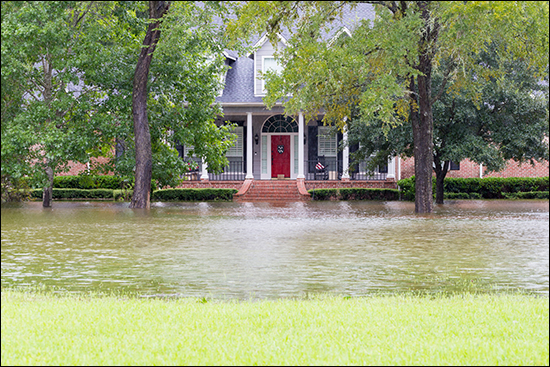 We have seen record levels of rain this year that has caused unusual flooding within properties. In light of the weather forecast, here are some reminders of important actions to take prior to the storm.
Actions To Take Prior To The Storm
| |
Dealing With Water Damage In Your House |
|
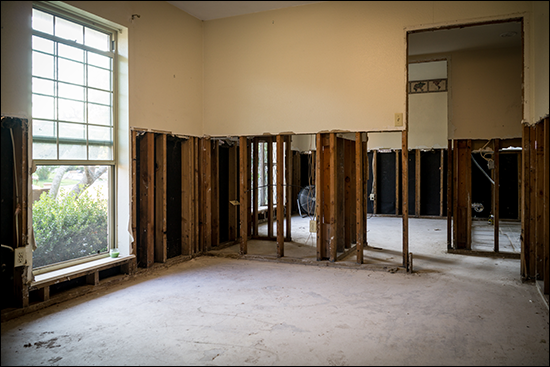 It has been a wet few days in the Valley. My house has remained dry, but I have been perfecting my water removal skills via shop vac, squeegee and more at our church. Below are some helpful recommendations from Spotless if you are dealing with water in your house...
The final stage is drying and monitoring should be done by a professional to prevent secondary damage (I.e mold and mildew). Unfortunately companies only have so much drying equipment.
| |
How to find a qualified home improvement contractor in Harrisonburg or Rockingham County |
|
 If you are looking for a qualified home improvement contractor in the Harrisonburg and Rockingham County, you may want to check out the Shenandoah Valley Builders Association's updated website and online directory! There, you will find a listing of contractors and other professionals in a variety of categories, including:
| |
Dangerous Conveniences, Part 2 |
|
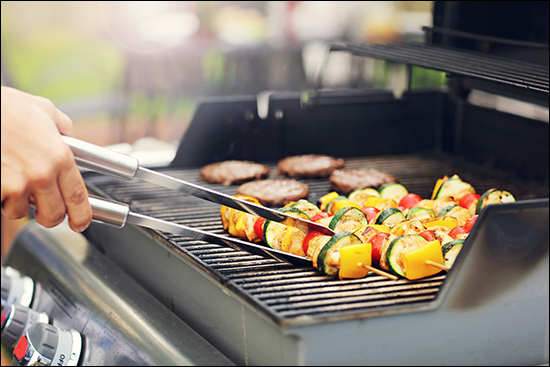 OK, this one is going to be a bit of obscure of an issue (hopefully!!) than yesterday's review of why you should upgrade many of your flexible plumbing lines to be braided stainless steel lines. But some food (ha) for thought for you related to the gas grill you may have sitting just behind your house. Wouldn't it be great if you didn't have to run out from time to time to purchase a replacement propane tank to sit underneath your grill? My experience has always been that I run out of propane in that small tank just when I'm ready to start grilling. So, it would seem fantastic, then, if your grill was hooked up to the much larger propane tank that your home also uses for heating, your gas water heater, your gas stove, etc. That way, the propane company that regularly comes to re-fill that large propane tank for you will be effectively ensuring that you always have propane for your gas grill. How convenient! :) But wait -- Could there be a downside to having your gas grill connected to such a large supply of propane? I'm going to say yes -- from my own personal experience -- thanks to a squirrel. A few months ago, I came home after a week away, and when I walked out onto my back porch I was greeted by an overwhelming odor!?! I eventually figured out that it was propane. I eventually figured out that it was coming from the gas grill. I eventually figured out that it was actually coming from the gas line running to the gas grill. I eventually figured out that a squirrel had chewed through that line while I was out of town, and that propane had been leaking (billowing??) into my back yard for at least a few days. Thankfully, there weren't any explosions as a result of this squirrel's devious behavior -- but it caused me to (quickly!) reconsider whether I appreciated the convenience of having the gas grill hooked up to a large in ground propane tank. I concluded that the convenience of not having to go out and purchase a new small propane tank every so often was not worth the risk of having the exposed gas line running to the grill damaged, and having lots of propane leaking out of an enormous propane tank. That conclusion was significantly reinforced when the propane company next came to fill my in ground propane tank. I sort of wondered if they were surprised by how much propane I had used in the middle of the summer. I have yet to track down the squirrel to send him or her the bill for the propane.... | |
Dangerous Conveniences, Part 1 |
|
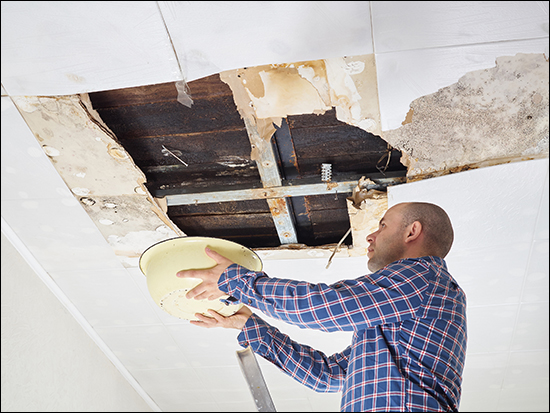 Isn't it delightful to be able to walk over to your modern refrigerator and fill your glass with sparkling, cold water, or freshly cubed ice? But wait -- do you know of the danger that might be lurking behind your refrigerator?!? Any refrigerator with an ice maker or water dispenser has (clearly) a water line running to the refrigerator, and it may be in your best interest to carefully roll that refrigerator out to take a look at that water line. Many refrigerators will have a clear plastic line run to them -- which is certainly the most affordable, and flexible solution to use when running water line to a refrigerator -- but it is also the most dangerous. If you ask your co-workers, neighbors or friends if they have ever had a water leak at their home, a split line running to a refrigerator is likely to be a common experience. What, then, are you to do? Abandon that convenient source of fresh drinking water? Say it is not so! No, in fact, you do not have to give up this modern convenience, but you should consider replacing that plastic water line to the ice maker with a braided stainless steel line. 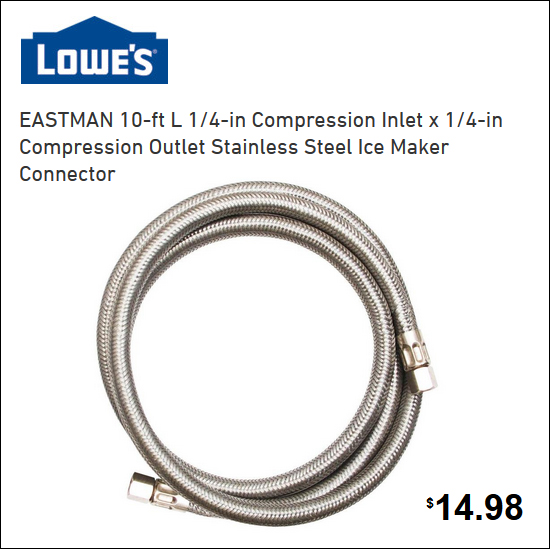 It is very difficult (unlikely) for a braided stainless steel line to leak -- and it is also not going to be accidentally split, cracked, punctured based on being moved around, or having temperature changes in the area where it runs. So -- to avoid a multi-month, inconvenient renovation to your home -- take the time, and make the minimal investment in upgrading the water line to your refrigerator! | |
Who should decide how agreed repairs are completed after inspection negotiations |
|
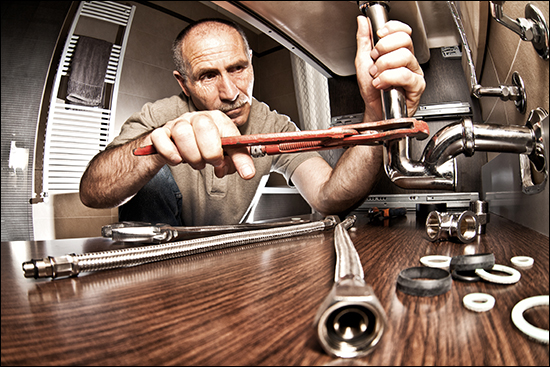 One of my clients made an insightful comment recently, which was to point out that.... On home inspection repairs -- sellers usually have a short term fix mentality -- while buyers usually have a long term fix mentality. And, successfully negotiating agreed upon repairs after a home inspection can be a smoother process if we reflect on the difference in those perspectives. Inspector: Several roof shingles are missing, and the roof is past its life expectancy. Seller: Replace the shingles. Buyer: Replace the roof. Inspector: The air handler coils are dirty and the heat pump is reeaaallly old. Seller: Clean and service the heat pump and air handler. Buyer: Replace them both! These are a few extreme examples to start to show the differences in perspectives on repairs. Again, the important thing here is to recognize that a buyer and seller look at home inspection reports differently. A seller typically wants to minimize their repair costs while keeping the home sale on track. A buyer wants to make sure that any previously unknown property condition issues are addressed in a manner that is likely to prevent further near term maintenance needs in those areas. Both perspectives are reasonable, most of the time, depending on how it plays out related to specific deficiencies of a home. So, what is a buyer to do? A few thoughts....
| |
Advanced Internet Connected Smoke Alarm from Nest |
|
 I recently installed a Nest Protect smoke alarm in my house to try out this new(ish) technology. The installation process was quite simple, using the Nest Home iPhone app to allow the Nest Protect smoke alarm to connect to my home wifi network. Physical installation was also very straight forward, as this is a battery operated alarm (not hard-wired) with a 10 year battery life. Some of my favorite features of this product include....
Learn more about the Nest Protect here. | |
Kevo Plus from Kwikset is a fun and useful Smark Lock |
|
 I recently installed a Kevo smart lock from Kwikset at my home and am enjoying the conveniences of unlocking the door simply by touching the lock instead of using a key -- and the ability to remotely lock and unlock the door. The installation of the lock was relatively straightforward -- it replaces your existing lock, fits most doors, and can be keyed to match your existing Kwikset locks on your home. Learn more about this smart lock on the Kwikset website. | |
In the event that the cold usually associated with Winter ever arrives... |
|
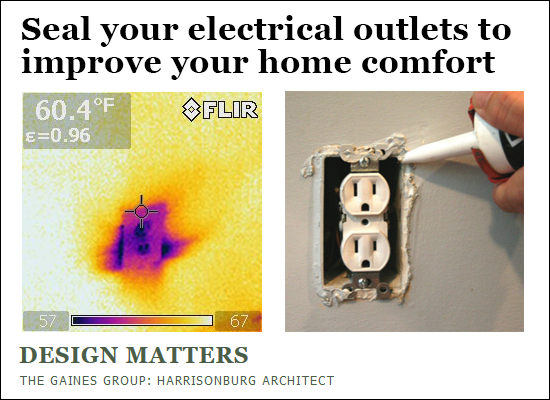 Next Tuesday (December 22) is the first day of Winter. The weather forecast shows we'll likely have 57 degree temperatures. Hmmm. Winter, huh? Might be a rather warm Christmas!?! Well, anyhow, if the cold usually associated with winter ever arrives, you may want to check out this tip from Charles Hendricks, an architect in Harrisonburg who performs energy audits. Seal your electrical outlets to improve your home comfort As Charles points out.... "In every house I visit to do an energy audit, the electrical outlets have been a major source of air infiltration. Sealing these holes up in your thermal envelope will reduce your energy usage and make your home more comfortable."Have you sealed your electrical outlets? How long did it take? How much did it cost? Did you experience the difference? | |
It is HOT out there! How to keep (your house) cool this summer.... |
|
 Summer is upon us! Mid 90's earlier this week. Both my neighbor and my sister had a broken AC unit yesterday. No fun! Below are some great tips from Charles Hendricks (an architect in Harrisonburg) for keeping your house efficient and comfortable this summer. Charles' tips include information on vampire loads, smart thermostats, opening windows, energy star appliances, clothes lines, ceiling fans, reduce appliance usage, replace air filters, humidistats and indoor plants. Click here to read about 10 things to make your summer more efficient and comfortable. | |
Visit the Harrisonburg SVBA Home and Garden Show This Weekend! |
|
 Don't miss Harrisonburg's SVBA Home Show this weekend! Saturday: 9:00 AM - 6:00 PMLearn all about the MANY fun activities happening at this year's home show here. | |
| Newer Posts | Older Posts |
Scott Rogers
Funkhouser Real
Estate Group
540-578-0102
scott@funkhousergroup.com
Licensed in the
Commonwealth of Virginia
Home Search
Housing Market Report
Harrisonburg Townhouses
Walk Through This Home
Investment Properties
Harrisonburg Foreclosures
Property Transfers
New Listings


